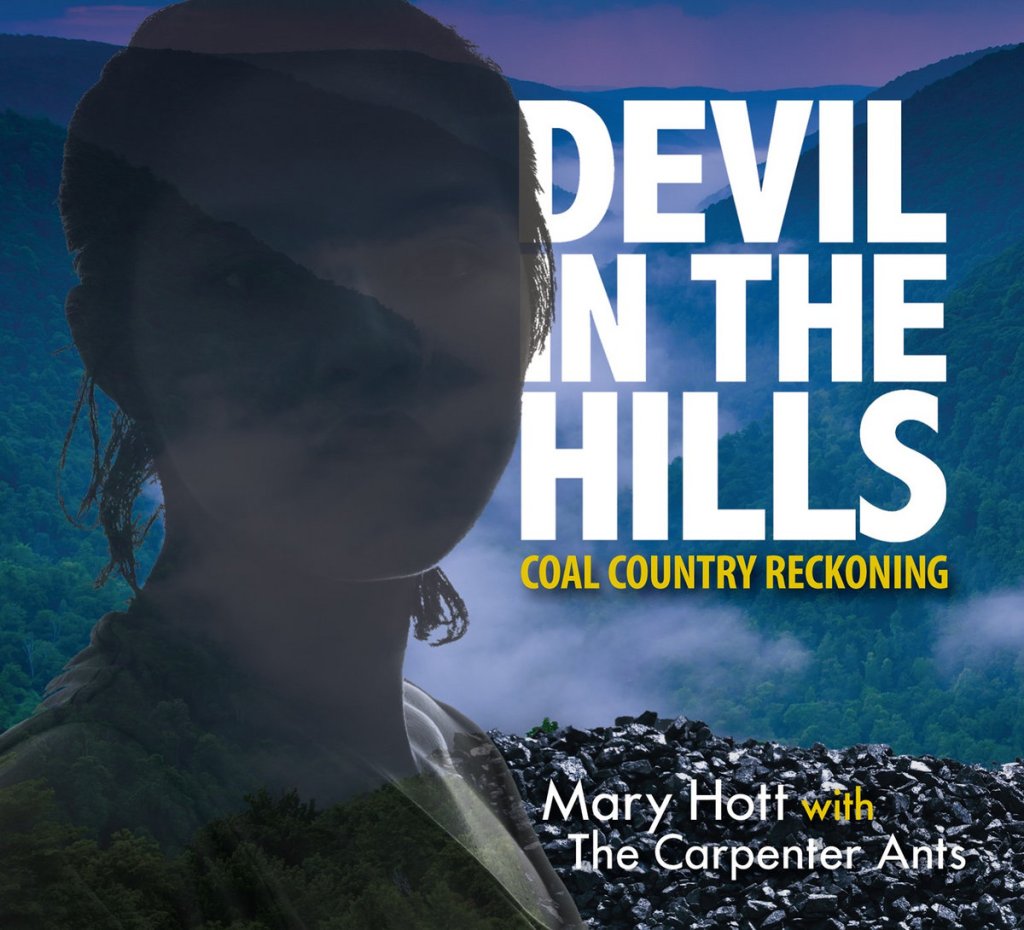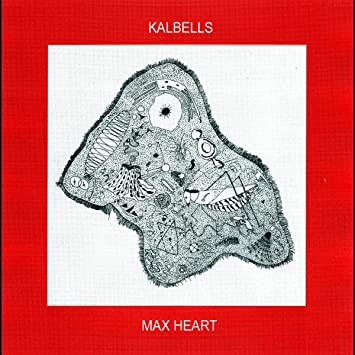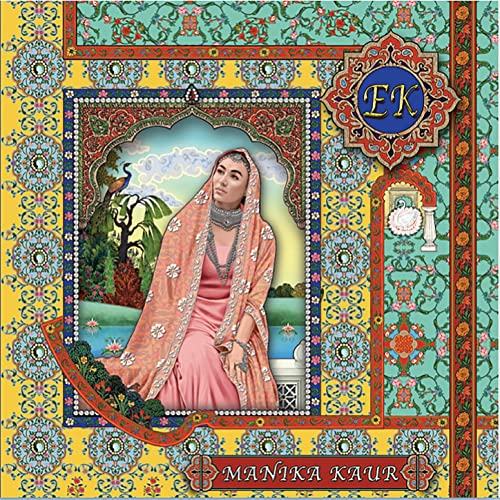CLASSICAL

Johann Kaspar Mertz; Franz Schubert
Vienna Concert
Raphaella Smits
Soundset Recordings
SR1121
Guitarist Raphaella Smits is a treasure, and her latest recording is too. While the album title might lead you to expect a live recording, that’s not what this is; instead, it seems to be an example of what a guitar concert in an intimate domestic setting in Vienna might have sounded like, circa the early 1800s. Hence the instrument (a gut-strung, eight-string guitar built around 1827) and the repertoire (early Romantic pieces by Johann Kaspar Mertz, along with several arrangements of Schubert songs). I came to this disc fully expecting to enjoy the Mertz pieces and to be captivated by the Schubert ones, which include arranged selections from his lieder collections Schwanengesang and Winterreise, but the Mertz kept taking me by surprise — particularly the heart-stoppingly gorgeous Lied ohne Worte from his opus 13 Bardenklänge collection. Smits herself plays with subtle but astonishing virtuosity, not only of technique but of musicality — her use of rubato, of glissandi and of vibrato exquisitely tasteful throughout. Highly recommended to all libraries.

Franz Schubert
Boundless: Schubert Sonatinas Performed on Historical Instruments
Zachary Carrettín; Mina Gajić
Sono Luminus (dist. Naxos)
DSL-92240
While we’re talking about Schubert on historic instruments, it seems to be the perfect moment to bring up another fine recent recording: this collection of three sonatinas for violin and piano, performed on an 1835 Érard concert grand piano and a 20th-century violin set up to accommodate the late classical and early Romantic styles and played using a classical-style bow from 1800. The recording was made in a small recital hall with a relatively dry acoustic, the better to capture a salon-like sound. Schubert’s three sonatinas, opus 137, were published posthumously but have become some of the most familiar and beloved of his chamber repertoire; without getting bogged down in the tiresome politics of period performance and “authenticity,” I’ll simply say that it’s nice to be able to hear these pieces played on instruments designed so that their sonic properties are at least roughly what an audience at the time would have experienced, and the dynamic but sensitive renditions by Carrettín and Gajić are consistently wonderful.

Neil Rolnick
Oceans Eat Cities
Various Performers
Albany
TROY1857
It’s almost commonplace now for composers to create works that require computers and live instrumentalists to interact with each other, but it wasn’t common at all when Neil Rolnick helped to pioneer the practice in the 1980s. He continues to write exceptionally original and engaging music in that mode, as this program of three recent compositions makes clear. On the title composition, the VOXARE String Quartet plays brisk passages that are augmented and altered through repetition according to a formula based on climate change data; Rolnick’s laptop computer processes the music alongside the quartet, using a similar function. Mirages is a piece for piano and laptop, on which Rolnick plays both simultaneously, while Deal with the Devil is written for violin, piano, and laptop computer, and is something of a meditation on the role of virtuosity in musical performance (its title referencing the legend that Nicolo Paganini’s jaw-dropping violin skills were the result of a deal made with the devil). Rolnick has a reputation for making music that is modern and challenging but still accessible and even humorous; you’ll hear some of that in the other two pieces, but the title track is quite serious and sounds that way — which I mean as a compliment. All of it is beautifully played.

Neunau
Rimodulazione di flauti Paetzold durante una sessione di libera improvvisazione di Antonino Politano (cassette & digital only)
Antonino Politano
Until Riots
No cat. no.
“Repetition,” Lou Reed famously said, “is anti-glop.” And say what you like about Lou Reed: the man knew about glop, and also about repetition. And this brings us to the new album by Neunau, a.k.a. producer Sergio Maggioni, which documents a live program of improvisation from 2019. (My Italian is a bit rusty, but I think the album title would be translated “reformulation of Paetzold flutes during a free improvisation session by Antonino Politano.”) All tracks are digital manipulations of music played by Politano on a Paetzold contrabass flute; little of the music is immediately recognizable as “flute music,” partly due to Maggioni’s post hoc ministrations and partly due to Politano’s virtuosic application of extended techniques that include percussive and multiphonic effects. Maggioni’s treatments leave the music highly repetitive, radically deconstructed, and endlessly fascinating — to me anyway, but you should probably bear in mind that I’m a big Muslimgauze fan. For all avant-garde collections.

Francisco Guerrero
Magnificat, Lamentations & Canciones
El León de Oro / Peter Phillips; Marco Antonio García de Paz
Hyperion (dist. Integral)
CDA68347
Peter Phillips is best known as the founder and conductor of the Tallis Scholars, but in recent years he’s developed a side gig working with El León de Oro, a splendid Spanish choral ensemble, of which he became the Honorary Conductor in 2017 and with whom he recorded an outstanding collection of 16th-century music in 2019. They have reunited here for a program of works by the underappreciated Spanish composer Francisco Guerrero; it includes a Magnificat setting, selections from the Lamentations of Jeremiah, and a handful of spiritual songs. El León de Oro is an unusually large group — I count 38 participants in this recording — with the kind of big, lush sound you’d expect, and a somewhat brighter and more colorful blend than that of the Tallis Scholars. As for the music itself, Phillips and the group make a strong argument that it should be classed alongside that of Guerrero’s more celebrated contemporary Tomás Luise de Victoria, and they perform it with admirable conviction and restrained intensity. This album is not only a sumptuous listen but also an important contribution to the scholarship of the Spanish Renaissance.
JAZZ

Azolia
Not about Heroes
Jazzwerkstatt
JW209
This is a highly unusual album by a highly unusual group. Azolia is a quartet consisting of singer Sophie Tassignon, saxophonist/clarinetist/singer Susanne Folk, saxophonist/bass clarinetist Lothat Ohlmeier, and bassist Adreas Waelti. On their third album, they have set to music ten poems by Wilfred Owen, which he wrote during his service in World War I; his book of poems was left behind after his death in 1918. Tassignon’s voice has something of a flutelike timbre, and the combination of her singing and the complex but deeply beautiful musical settings she and Folk have created remind me quite a bit of June Tabor’s later work, as she was transitioning from traditional folk singing to a sort of folk/art/salon hybrid style. The poems themselves are heartbreaking, but the music complicates things by bringing light and color to what might otherwise have been only depressing lyrical content. The music doesn’t make the poems lighter or (heaven knowns) whimsical in any way, but it breathes air into what could have been a suffocating conceptual space, and helps fulfill the musicians’ desire to “bring a little more peace into the world” through their adaptation of Owens’ observations about war. The result is both touching and musically invigorating.

Carl Saunders
Jazz Trumpet
Summit (dist. MVD)
DCD 761
Maybe you’ve never heard of Carl Saunders; it’s true that most of his long career has been spent as a sideman — though, granted, to the likes of Ella Fitzgerald, Harry James, and Benny freaking Goodman. And maybe you think Jazz Trumpet is a boring album title. OK, fair enough. But here’s the thing: this boringly-titled album by a guy you’ve never heard of is one of the best straight-ahead jazz albums you’re going to hear this year. Leading a quartet that includes legendary drummer Joe LaBarbera and bassist Chuck Berghofer alongside up-and-coming pianist Josh Nelson, Saunders takes us on a journey through the American Songbook with stops along the way for his own outstanding original compositions, always swinging hard and playing with a soft, golden tone. His arrangements are worth noting as well: he multitracks himself in several places, such as on the shout chorus to “Recordame” and the head to his own “Say What,” a straightforward blues on which he plays a startlingly complex solo. He makes tasteful use of the Harmon mute on “I Thought about You,” and switches appropriately to flugelhorn on the Tom Harrell composition “Sail Away.” Everywhere the playing is warm and the ensemble has that magical combination of tightness and looseness that marks a great jazz combo. Highly recommended to all libraries.

Satoko Fujii Tokyo Trio
Moon on the Lake
Libra
203-065
Natsuki Tamura; Satoko Fujii
Keshin
Libra
102-064

Pianist/composer Satoko Fujii and her husband trumpeter/composer Natsuki Tamura formed the Libra label in 1997 as an outlet for their expansive and sometimes challenging take on jazz tradition. On these two new releases, you can hear Fujii continuing to push those boundaries. Her trio album is absolutely outstanding: it’s by no means a straight-ahead jazz album, but no matter how “out” it gets, you can hear the love of tradition that she and her young bandmates bring to it. On “Hansho,” drummer Ittetsu Takemura invokes the sounds of nōh drama during his solo, and Fujii evokes her hero Bill Evans with some big chordal passages; bassist Takashi Sugawa alternates between buttressing and subverting the melody. Elsewhere, the group improvises freely in a more abstract vein (“Waiting for the Moon to Rise,” “Keep Running”), leaving lots and lots of space for independent ideas to develop. Keshin, a COVID lockdown duo album made with Tamura, is even better: here there’s plenty of improv but also thrilling passages of composed duo work that showcase both musicians’ jaw-dropping virtuosity, wit, and creativity. Fujii notes that in some ways, performing at home has freed up that creativity by disconnecting them from the need to sense how the audience is reacting and adjust accordingly. On “Donten” (notice how nearly unrecognizable the piano is during the opening passages here) they create melodies that are almost but not quite atonal, and yet at the same time strangely lyrical; “Three Scenes” finds Tamura channeling his inner John Zorn with lines that sound like they were made with bird calls, while Fujii builds whole sonic palaces with her piano; the piece then becomes more more conventionally tuneful but still harmonically challenging, as is “Dreamer.” Both albums are recommended to all jazz collections.

Pino Palladino & Blake Mills
Notes with Attachments
New Deal/Impulse!
B0033319-02
With this album, bassist Pino Palladino and multi-instrumentalist/producer Blake Mills have created a weird but wonderful mix of sounds and flavors, resulting in something that is explicitly jazz-adjacent but hardly jazz. Billed as “both a producers’ album and a players’ album,” it germinated from snippets of musical ideas that Palladino sent to Mills for his musical input, and to which Mills responded so comprehensively that eventually, in Palladino’s words, “it dawned on both of us that it would be a collaborative record.” From the tightly composed broken-beat groove of “Soundwalk” to the bubbling Afrobeat-plus-skronk of “Ekuté” to the slippery and funky “Chris Dave,” the sound has a weirdly electronic vibe, even when most of the actual sounds are being made by acoustic instruments and the drums are live. Of course, some of the instruments credited are a bit mysterious: on one track Mills is credited with “rubberized guitar”; on another, he plays a “gamelan fretless bass.” I promise this album is unlike any you’ve heard this year, or any year.
FOLK/COUNTRY

Maia Sharp
Mercy Rising
Self-released
No cat. no.
You may not know Maia Sharp’s name, but there’s a good chance you know one or more of her songs: she’s written for Bonnie Raitt, The Chicks, Trisha Yearwood, and many others. Every few years she releases an album herself, usually to significant Triple A radio success but not necessarily to worldwide acclaim. Her latest isn’t likely to change that — her style is too personal, her sound too far removed from what’s currently hip — but for those with ears to hear, her take on rootsy, Nashville-inflected singer-songwriter country/rock is magnificent and mesmerizing. But quietly so: the Tom Waits-style junkyard guitars on “You Know Who Knows You” stumble and mutter in the service of a gentle reflection on the joys of getting to know a new lover; the Hammond organ and acoustic guitars on “Nice Girl” provide a gritty but soft bed for a kiss-off song that packs its punch in a deceptively thick layer of velvet. Sharp’s singing style is attractively plainspoken, and her melodies are indelible without being showy. It all adds up to a deeply emotionally satisfying album, if not exactly a joyful one. Recommended to all libraries.

Mark Rubin, Jew of Oklahoma
The Triumph of Assimilation
Rubinchik Recordings
054
Mark Rubin (Killbilly, Bad Livers) has always been Jewish, but has only made his Jewishness a central feature of his musical identity in the past 20 years. But as you can see from the presentation of his new album (not to mention song titles like “Down South Kosher” and “Good Shabbes”), the implications of his Jewishness and its intersection with his Southernness/Westernness have become central to his musical and social concerns — and the musical result is engaging, fun, and at times chilling. Someone who grew up having crosses burned on his front lawn and bricks thrown through his window on Hitler’s birthday, but who fell in love with the music of his region early on, is inevitably going to have a — shall we say — complex relationship with American country and folk-derived music, and you’ll hear that complexity everywhere on this album: on his setting of Mordecai Gebirtig’s poem “A Day of Revenge”; on his ballad about the lynching of Leo Frank; on the “bonus Hanukkah track” “Spin the Dreidel.” And on his clawhammer banjo arrangements of Klezmer tunes. The music is genius; spin this one at a party and watch the conversations stop.

Eli West
Tapered Point of Stone
Tender & Mild
TAM-CD-060
Guitarist/mandolinist/banjoist/songwriter Eli West loves bluegrass, but isn’t a big fan of the flashy and competitive virtuosity aspect of it, preferring the more communal approach of pre-bluegrass string band music and of modern post-folk by the likes of Mandolin Orange and John Hartford. So his new album finds him creating something of a level playing field for himself to share with the other instrumentalists and singers he gathered for a set of live-in-the-studio recordings. As one might expect, their sound is tight but flexible, West’s tunes (notably the gorgeous “Ginny’s Little Longhorn”) complex but deceptively simple-sounding, his songs gently insightful. At no point do you find yourself saying “Man, I wish I could play as fast as that guy,” but at multiple points you’ll say to yourself “It would be wonderful to play in a band like this.” If your library collects folk and Americana, you should consider this album an essential purchase.

Mary Hott with the Carpenter Ants
Devil in the Hills: Coal Country Reckoning
Self-released
No cat. no.
The title of this album telegraphs the fact that singer/songwriter Mary Hott is not messing around. Her songs deal with the harsh and nasty legacy of corporate coal mining practices in West Virginia. While generations of songwriters have addressed the issues of environmental damage, union-busting, and poverty-perpetuating corporate practices on the part of these companies, Hott shines light on an even more disturbing legacy: the trafficking of young women and girls (some as young as twelve) as “comfort girls” for the managers working in more remote mining locations. The music is bluesy and dark, and benefits from outstanding production by Don Dixon (R.E.M., the Smithereens) and Michael Lipton; the program includes not only only songs by Hott but also a traditional ballad from the region, the Latter-day Saint/Baptist hymn “Life’s Railway to Heaven,” and, somewhat startlingly but not at all inappropriately, a dynamite voice-and-piano cover of John Denver’s hit “Take Me Home, Country Roads.”
ROCK/POP

Sagan
Anti-Ark
Seeland
537
You can get away with a lot of weirdness if you deliver it in the context of a groove. On its second album in fifteen years, avant-post-rock supergroup Sagan (whose members have spent their careers in and around ensembles and artists like Blechdom, Negativland, Fred Frith, Huun-Huur-Tu, and the Thurston Moore Group) has created a strange but charming tribute to “the early decades of space travel and the High Frontier.” The music is paradoxically dense but light, filled with bleeps and bloops and glitches and squawks all tied together by a subtle but steady rhythmic framework. If you listen for them, there are even melodies from time to time, or at least melody-adjacent pitch patterns. While one might expect music on a space-travel theme to be spacious and open, Sagan goes the other direction: in the crowded welter of sounds you’ll hear hints of 1950s sci-fi movie music, nods to 1970s Krautrock, and sudden detours into lovely clouds of ambience. The combination of subtle underlying structure and utter unpredictability makes Anti-Ark an unusually compelling album.

Kalbells
Max Heart
NNA Tapes (dist. Redeye)
NNA 135
I do love me some quirky pop music, especially when the weirdness is buttressed by genuine tunefulness, and there’s plenty of both on Kalbell’s second album. Led by former Rubblebucket front woman Annakalmia Traver, this all-woman band operates in a gently off-kilter synth-pop mode, delivering bubbling melodies that sometimes burst into startling melismatic flight and grooves that push but never shove. Those melodies and grooves carry lyrics that are quite a bit more assertive, however, and can include couplets like “Earth’s needle in my wax, pull a rumi don’t hold back/Perception doors all gone, pull a huxley but not for too long.” Note the synthesized trombone solo on “Hump the Beach” and also the sassy, salty rap interlude on “Pickles.”

Dictaphone
Goats & Distortions 5
Denovali (dist. Redeye)
den361
Releases on the Denovali label tend strongly towards a dark, sometimes foreboding drone and ambient music, much of which uses regular rhythms rarely if at all. This one is different. Its organizing principle is the concept of “morbid instruments,” which I realize sounds a bit strange, though the image is apt: one of the “instruments” used in the recording was a decrepit tape machine which produced eerie, ghostly sounds before finally dying. (Another instrument “died” in the course of these recordings as well: clarinetist Roger Döring played a bass clarinet for the first time on these sessions, and then promptly lost it in the subway.) The clarinet is central to the sonic concept throughout this album, which also features violinist Alex Stolse; all of the music is treated and given spooky background by bandleader and sound artist Oliver Doerell. There are times when regular beats might make you think of a slightly more depressive O Yuki Conjugate; at other times, the clarinet wails softly over a bed of crackles, pops, altered strings, and unidentifiable clouds of found sound. This is a terrific album, but not necessarily a great one to listen to if you’re alone in a big house at night.
WORLD/ETHNIC

Manika Kaur
Ek (digital only)
Six Degrees
SR0021
Manika Kaur is a Sikh devotional singer and philanthropist, equally devoted to kirtan singing and to her nonprofit organization Kirtan for Causes, which raises funds and awareness in support of feminine hygiene products and education for girls in Punjab. Her music is very popular in the international Sikh community, and on her latest album it’s easy to hear why: her voice is a clear and gentle as a mountain brook, and her collaborators provide a winning mix of traditional Indian and Punjabi instrumental accompaniment and bubbling Western beats. Singing primarily in Hindi (I think), she also switches to English on several songs; all of them are songs of praise to God (often addressed as Waheguru, a common Sikh usage) and all are sumptuously beautiful; Kaur’s singing style is tender and vulnerable but powerful and confident at the same time. This is an utterly lovely album that would make a welcome addition to any library collection.

Piper Street Sound (featuring Andy Bassford)
Black Eyed Peace (EP; digital & vinyl only)
Piper Street Sound
No cat. no.
Bassist and producer Matt Mansfield has been emitting wonderful roots reggae sounds from his studio in Atlanta, Georgia for years. On his latest effort — titled in sly tribute to his home region — he teams up with legendary guitarist Andy Bassford (Toots and the Maytals, Dennis Brown, Roots Radics) for an all-too-brief set of blissfully tuneful instrumental reggae that is equally perfect for quiet at-home listening and for an outdoor sound system dance. Bassford’s guitar leads are prominently featured but they don’t dominate the mix — this music is about the collective groove first and foremost, and live horns (recorded, fortuitously, just before the pandemic shutdown made indoor gatherings of wind instrumentalists impossible) are also in the mix. Mansfield’s production style draws on the techniques of dub masters like King Tubby and Dennis Bovell, but never draws undue attention to itself. The result is perfect summer music from a young master of a venerable form.

Ahmed Warshanna
Ishta
Tiber River
TR-001-CD
Sometimes deep emotional turmoil can result in amazing art. In this case, jazz guitarist and composer Ahmed Warshanna was led by watching his mother suffer through cancer treatment to compose an album of music in her honor. In doing so, he decided to celebrate simultaneously the Egyptian popular music that she loved, and that he had heard throughout his childhood, and the hard-bop jazz tradition that is his primary arena of musical expression. He adapted three Egyptian melodies; two by legendary composer and singer Umm Kulthum and one a children’s song that he had often sung with his mother. And he wrote two original compositions that blend Egyptian melodies and harmonies with a jazz idiom and arrangements. His arrangements are well worth noting — he leads a septet here, and creates settings that often blur the lines between solo and ensemble sections; there’s never a sense of chaotic disorganization, but the arrangements tend to be complex and multi-layered, with a sense of joyful freedom. My favorite composition was the slowly but powerfully swinging “Samaka,” but there’s not a weak track here.
Pingback: August 2023 | CD HotList